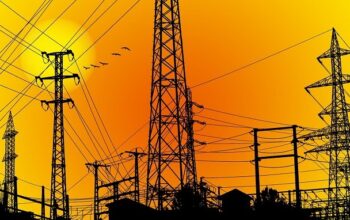By Staff Reporter
LAHORE: The Lahore High Court on Tuesday rejected post-arrest bail for Imran Khan, the incarcerated founding chairman of the Pakistan Tehreek-e-Insaf (PTI) party and former prime minister, in eight cases tied to the violent riots of May 9, 2023, including the brazen attack on Jinnah House.
The ruling delivers a fresh blow to Khan, whose legal woes have multiplied since his ouster from power, intensifying Pakistan’s already fractious political landscape.
A two-judge panel, consisting of Justice Syed Shahbaz Ali Rizvi and Justice Tariq Mahmood Bajwa, issued a short order denying Khan’s bail petitions after reserving its judgment the previous day. The court promised a detailed verdict at a later date. The decision upholds an earlier ruling by an anti-terrorism court, which on November 27, 2023, also refused Khan bail in these cases.
The eight cases stem from a turbulent day in Pakistan’s recent history, May 9, 2023, when riots erupted following Khan’s arrest on corruption charges. The unrest saw PTI supporters and others target military and civilian sites across Lahore and beyond.
Among the incidents: the storming of Jinnah House, the official residence of the Corps Commander in Lahore; attacks on Askari Tower in Liberty; the torching of Pakistan Muslim League-Nawaz (PML-N) offices in Model Town; an assault on Shadman police station; the burning of police vehicles near Jinnah House; and violence at Sherpao Bridge.
Khan’s legal team, led by Barrister Salman Safdar, fought vigorously for his release. In the bail petitions, they argued that the prosecution had failed to link Khan directly to the incidents outlined in the First Information Reports (FIRs). They described his implication in the cases as part of a “well-orchestrated plan” to harass and humiliate him for political gain, a charge leveled amid Khan’s detention by the National Accountability Bureau (NAB) at the time of the riots.
The defense zeroed in on the prosecution’s reliance on a single allegation: “abetment.” They called it vague and unsubstantiated, asserting that the anti-terrorism court had ignored how similar claims against Khan had crumbled in the past due to inconsistencies in the investigating agency’s accounts. The petitions urged the Lahore High Court to reverse the lower court’s decision and grant bail across all eight FIRs.
The prosecution, however, painted a starkly different picture. They accused Khan of orchestrating the chaos, alleging he had instructed PTI leaders and workers to attack military installations during the protests. To bolster their case, they pointed to an audio recording, purportedly of Khan, that had been forensically examined. Efforts to confirm its authenticity hit a wall when Khan refused to undergo a voice-matching test, they said.
The Jinnah House attack stood out in the prosecution’s argument. Unlike the other incidents, Khan was specifically named in the FIR for that case. Prosecutors insisted that substantial evidence tied him to the violence, making him ineligible for bail.
Tuesday’s ruling lands amid a broader saga of legal and political turmoil for Khan, who led Pakistan from 2018 until his removal via a no-confidence vote in April 2022. Since then, the 72-year-old cricket-star-turned-politician has faced a cascade of charges, from corruption to incitement. His allies decry the cases as a vendetta by rivals, including the PML-N-led government, to kneecap his influence. Critics, meanwhile, argue that Khan’s legal troubles reflect accountability for his overreach, which was long overdue.
Copyright © 2021 Independent Pakistan | All rights reserved




